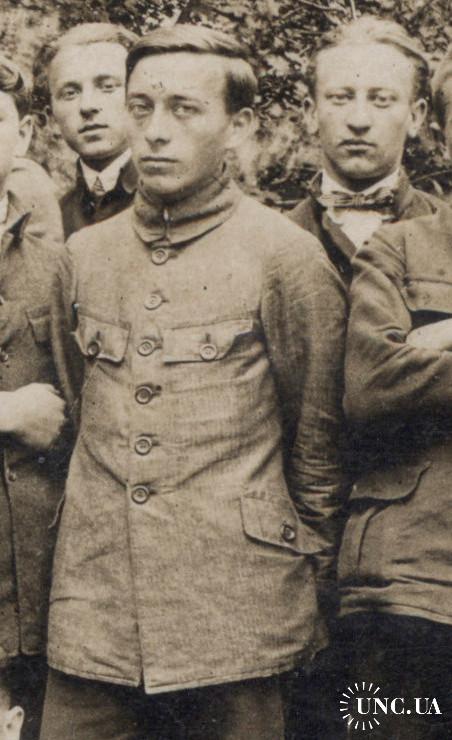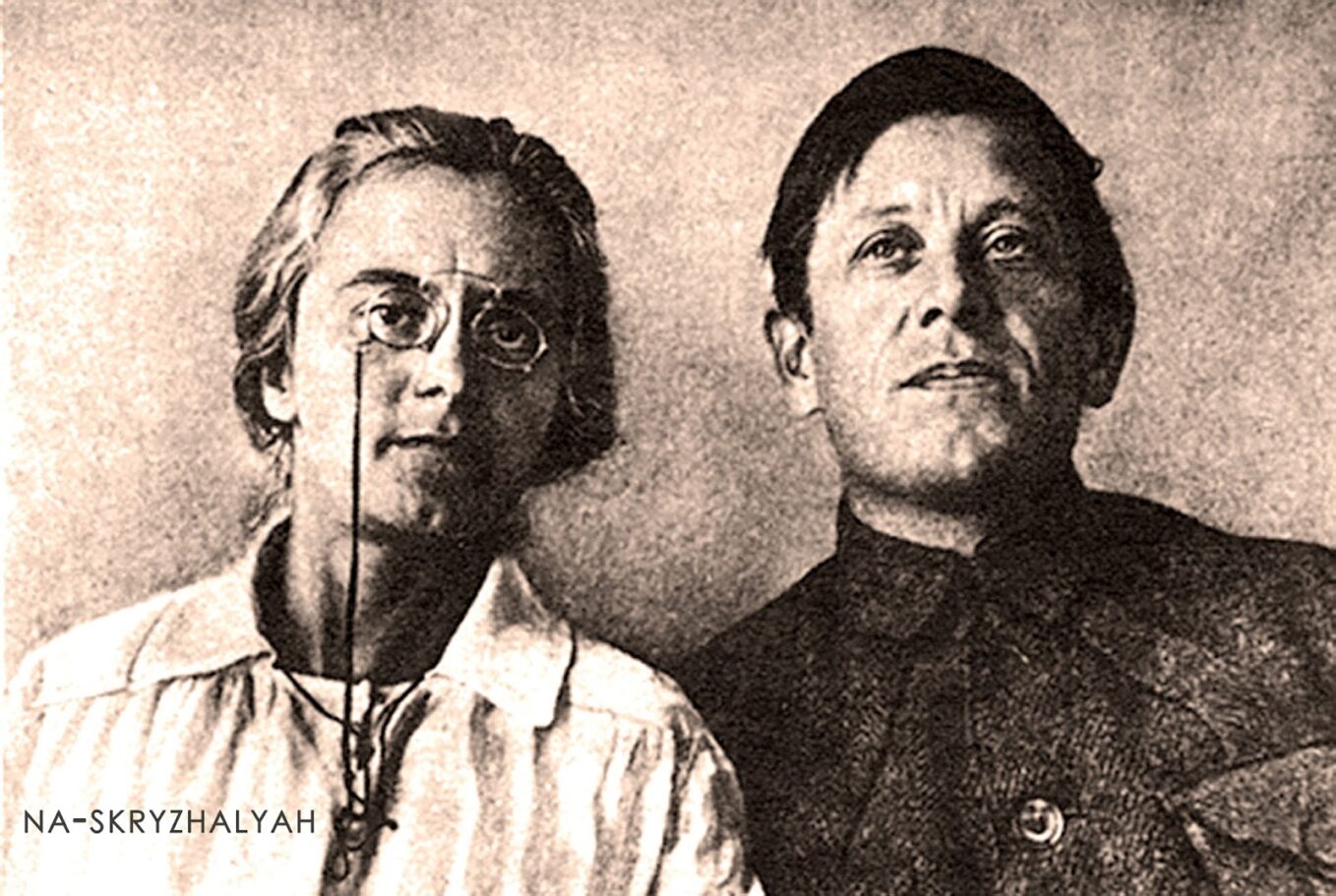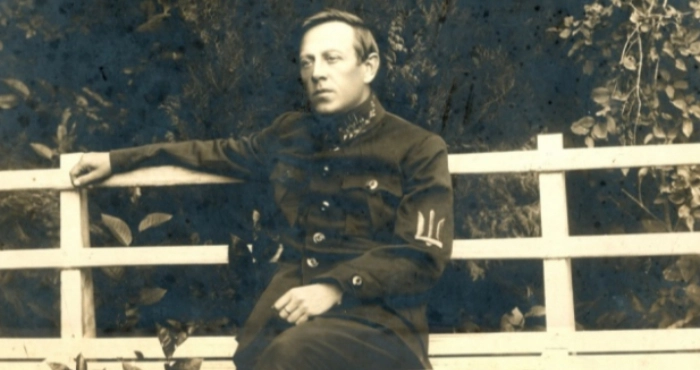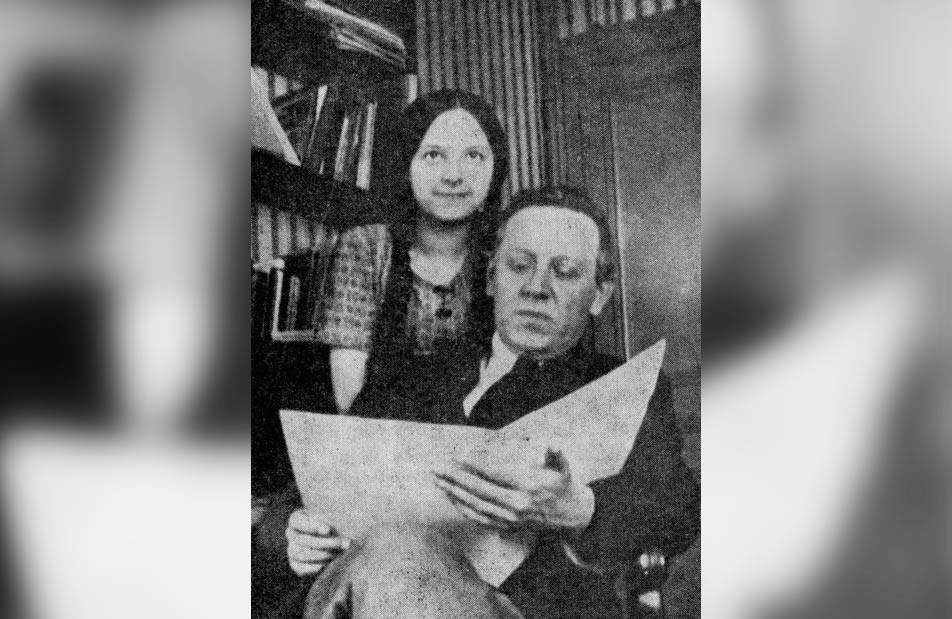“Clean cause needs clean hands”
— Symon Petliura, speech, August 1919
Petlyura’s persona is full of myths, especilly on the West. He is described as “Nationalist“, “Pogromist“, “Dictator“, and many other pejoratives. This article exist to address those. Not a “right-wing reactionary“, not a “xenophobe”, nor a “capitalist lackey“
When Ukrainian struggle faced its hardest challenges, its main leader, Volodymyr Vynnychenko, due to depression and internal ideological conflicts, stepped down as a leader, and Petlyura took his place.
Brilliantly put by Ukrianian historian Taras Hunczak:
“During those stormy days, Vynnychenko and Petliura emerged as the representatives of Ukrainian aspirations for political independence. Although both belonged to the Social Democratic Party, they differed markedly in their approach to certain basic problems. Vynnychenko, a Utopian socialist, emphasized the primacy of the socio-economic factors in the revolutionary struggle. Consequently he was tom between national interests and his quixotic brand of socialist idealism — a factor that may, at least partially, explain inconsistencies in Vynnychenko’s political life.
Petliura, on the other hand, sought the realization of his ideals of social justice and equality within an independent Ukrainian Republic. Thus he emphasized the practical side of the struggle for independence. This has led some observers to conclude erroneously that Petliura subscribed to extreme nationalism with its usual exclusive, discriminatory, and frequently intolerant tendencies. For lack of a better word in the English language one may, indeed, use the term "nationalist," but only in its most general connotation. In trying to comprehend Petliura’s political thought, one comes closer to the truth by realizing that he was first and foremost a "Samostiinyk," (Independentist), that is, one who regarded national independence as the sine qua non for fulfillment of all other aims. Their differences notwithstanding, Petliura and Vynnychenko were both devoted champions of popular democracy”
Political views of Petliura had an interesting evolution. From "Ukrainian Marx", "Orthodox" and “Kautskyite“ to "National Democrat", "Independentist", etc. And although his views significantlt changed, I argue that his core beliefs stayed the same.
Petliura is from a Ukrainian generation figure which grew with the “Communist Manifesto” in one hand and a "Kobzar" in another, a generation that combined the Ukrainian Republican-egalitarian thought with Western European Social Democracy.
Petliura accepts socialist ideal quite early in his life, but he combines it with his great interest in Ukrainian culture, theater, Shevchenko's works and his love with Lysenko's (Ukrainian “people’s musician“) music and its motives. Marxism, largely doctrine complete with clear, nearly mathematical structures, that tried to make a “science“ from itself, with the linear movement of history, the struggle of classes and the analysis of progress due to it.
Such approach was not well combined with the richness of cultural interpretation. Petliura from the beginning of his admiration Marxism, combined it with a romantic-humanistic cultural force, and in many respects he rejects all the determinism of Marxism in favor of much wider broad view. In this he is also helped by the then the great Marxists, Kautsky and Bernstein. When Kautsky opened Marxism for a broad democratic participation, Bernstein opened it to a combination with other disciplines, modern sciences, modern political theories, etc. Thanks to the latter, a huge number of left and right "revisions" of Marxism appeared, given it new live and thought.
In such a light, Petluira’s Marxism developed.

Right-wing nationalist?
The values of Petliura proceeded from the principles of comprehensive human development, a combination of individual and general interests and the protection of human rights - which quite organically combined into a general humanistic vision.
Seeing the goal as general human development, not the Marxist-class movement of history, Petliura fast to reject class struggle as main tennant, or even as a positive force. He also rejects the goal of construction of socialism, at least in the short-term, violent-revolutionary perspective. Instead, he theorizes a social welfare state, which, through regulation, protection of workers' rights, redistribution and social guarantees, creates a harmonious coexistence of classes, social and national groups.
He saw the development of socialism in the gradual development of cooperative movement, morality of the people, but did not see it through social conflict of irreconcible interests of social groups. Just based on the position that socio-class interests can be reconciled, balanced for development of something more important - in the case of Petliura - a democratic nation-state, General good; Petliura gathers that social development should be due to compromises and reducing harmful, separating conflicts, not through dividing classes.
One can often see the comparison of Petliura with the Polish national hero Pilsudski, and despite the relationship of sympathy between the two, such comparisons overlooking by the deep democratic ideology of Petliura, contrary to Pilsudski’s vision of a one-party technocratic state. For Petliura democracy was not only as an instrument of the individual to protect his rights, but also in a certain Roussean sense - as a tool only through which can the universal will of the people be found, and that only on such principles is a nation-state possible.
Such were Petliura's views. They evolved, but key values remained the same. In general, he was on the spectrum between two Ukrainian parties: Ukrainian Social Federalists and Social Democrats. And this is quite telling: the priority for Petliura remained a compromise between political forces, sometimes even in those days, when rapid reforms would be more useful. He never rejected the republican ideas of common good, patriotism and democracy, although in all other matters he was ready to make concessions. His “non-partisan“ approach was both unifiying tool and lost opportunities
An important context of Petliura's activity is his coming to power in a period when UNR reforms were the most popular and left-wing radicl.
Based on the mass support of the late UNR radicalism, it can be stated that Vynnychenko, Hrushevskyi, Shapoval and others on the "left" wing of the already left-wing republic were right: nations are born from the revolutions. Social struggle united people, showed the importance of cooperation, their common interests, which entailed national identity.
And so the deepening of the social reforms was generally a more correct approach than trying to find a compromise with privileged groups affected by those reforms. Petliura himself in 1906 quoted: "Kautsky words: “in great revolutions, nations are born" are truthfull, and Ukraine can be the best example"

We can indicate a certain level of Petliura's liability for a lack of understanding and rapproachment with the radical elements of the UNR at the moment when cooperation with them was crucially needed. Radical forces presented by the UKP (Independent Ukrainian Communist Party) and the UPSR (Ukrainian Party of Socialist-Revolutionaries) tried to create an independent Councillist Ukraine, and demanded the resignation of the Directory (which lost a significant proportion of legitimacy due to the conflict with most of the UPSR - a party representing about 70% of Ukrainians. Only the most moderate wing of the UPSR cooperated with the Directory). However, if with the UPSR relatively normal relationships were maintained, Independent Communists of UKP were arrested for suspicion of a government coup. Soon they were released. It is unknown whether these suspicions were justified. But the distrust that existed between the two camps of Ukrainian politics created obstacles for cooperation, and even hostilities.

Pogromist?
Petliura received the biggest attention in the international discourse as the "Pogromshchik", myth that was spread by Russian propagandists. No serous historian considers Petliura as a pogromist. However, different historians evaluate different levels of responsibility for the lack of army discipline.
Taras Hunchak describes in his "Petliura and the Jews: A reappraisal" how Petliura did his best to protect against the pogroms, while Henry Abramson in "Prayer for the Government", describes the UNR progressive pro-Jewish policies, emphasizes that Petliura is responsible that "he could not discipline his troops", in particular, regarding inaudible mobilization, where patriotic citizens were mobilized together with unreliable elements.
Traitor of Galicia and Volyn?
Vasyl Hryshko, Ukrainian political activist in emigration described the nature of the Polish-Ukrainian Union in interesting way: according to his view, the UNR army tried to connect with the Ukrainian Galician army (UGA) to keep as much of the Ukrainian military force as possible, and at the same time maintain a future possinility for further liberation and Western lands.
Based on the correspondence of Y. Tyutyunnik, One of the leaders of the winter campaign and the representative of the UNR position, and representatives of the Red Ukrainian Galician Army, the UNR supported the transition of the UGA to the Bolshevik side, considered it the right step in terms of conservation of forces, saw the possibility of cooperation with Independent Communists, who then joined Bolsheviks.
They were considered "friends on the other side of the barricades". In general, there was communication between the Red UGA and the UNR troops, allied relations and a plan to combine forces under the UNR flag when possibility will arise. However, the plan was prevented by Polish "allies", which simultaneously arrested the Ukrainian soldier and disarmed the Ukrainian army.
It is important to say that the alliance with Poland and the UNR was concluded in the conditions of the past the treacherous transition of the UGA to the side of the Whites, which was not supported by soldiers of UGA itself and initiated by the conservative higher ups; Simultaneously with the presence of a conflict of leadership between the Directory of the UNR and Western Ukraine, on the basis of political leadership and socio-political orientation, the situation was tense. All this explains in general the complex situation of the Polish-Ukrainian alliance, free from a simple interpretation of the surrender of Western Ukraine to the Polish occupation.
This also follows the readiness of the Directory, including Petliura, to a fruitful cooperation with a independent communist center. The willingness of Petliura's to cooperate with the Independent Communist ataman Tyutyunnik is also important sign of pluralism and flexibility.
Usurper in emigration?
It is more difficult to talk about emigration. The huge contribution of the UNR State in exile, which was formed by Petliura supporters, including moderate Social Democrats, Isaac Mazepa, Fedenko, Livytsky and others.
However, if during the Russo-Ukrainian War, distrust of Independent Communissts and Petliurians on both sides had some legitimacy, in emigration it can be openly said that Petliura's activity personally and of his moderate supporters, were harmful to the unification with powerful and important force of Ukrainian radical socialist (councillist) emigration, as well with national-democrats from Western Ukraine, who, facing lack of understanding of Polish occupation from exiles, tried to align USSR.

Conclusions
In general, whether Petliura is "the hero" should be decided individually. He made enough mistakes, but also enough has its merit. Similarly, his relations - including conflicts - with the UPSR and Independent Communists, Western Ukraine politicians - different people can have varying degrees of criticality.
But, Petliura is certainly a talented left activist and politician, reformer and military leader who deserves respect. Whether it is necessary to take him on the flag is an individual question. However, before making this decision, we need to know what we are talking about, without myths.